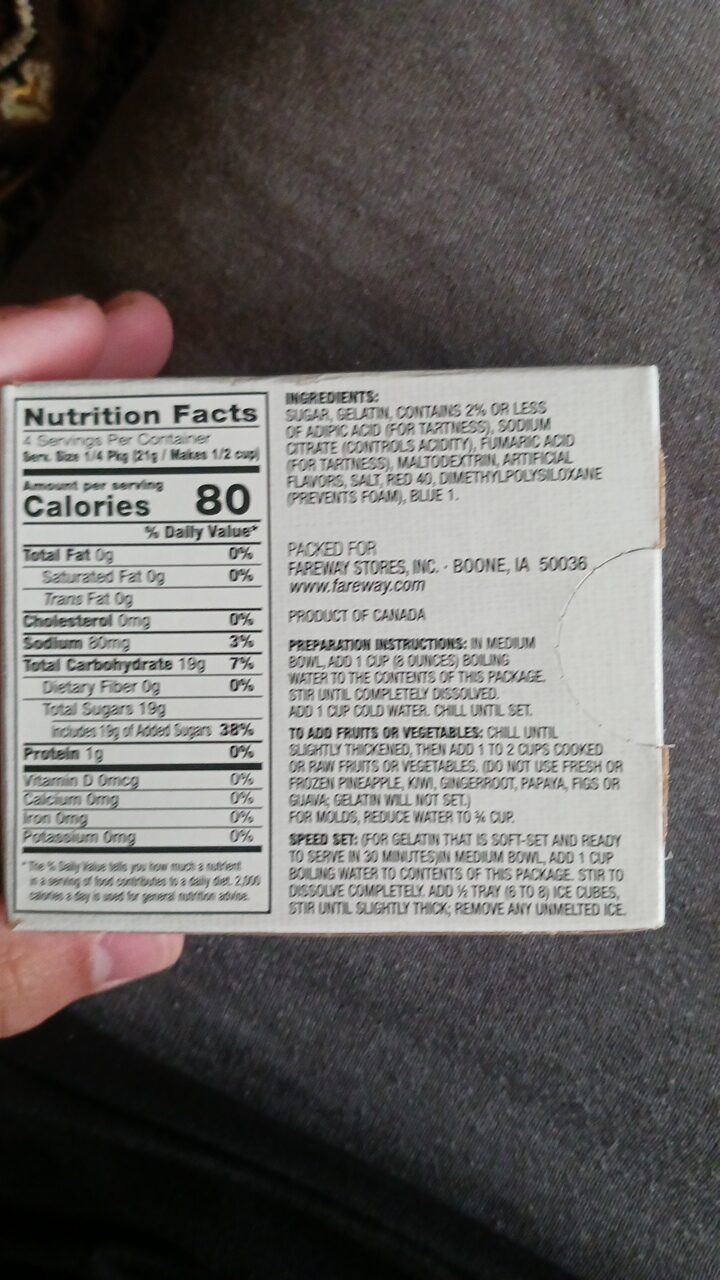
Barcode: 021333080033
jelly
DOUBTFUL
📝 Reason: The product contains ingredients with doubtful Halal status, such as gelatin and artificial flavors, which may be derived from Haram sources. Islamic dietary laws require clear Halal certification for such ingredients to ensure compliance. Quran 5:3 prohibits consumption of pork and its by-products, which could be a source of gelatin.
🏷️ Category: Dessert, Gelatin
📄 Certificates: None
Ingredients:
Details
Understanding the Halal Status of Jelly
When it comes to desserts, jelly is a popular choice for many, but its Halal status can often be unclear. In this comprehensive review, we will explore whether jelly is Halal and delve into the specific ingredients that may affect its compliance with Islamic dietary laws.
Halal Status Overview
The jelly in question has a Halal status labeled as DOUBTFUL. This designation raises immediate questions about its ingredients, particularly those that may derive from non-Halal or Haram sources. According to Quran 5:3, the consumption of pork and its by-products is forbidden, which leads to specific concern regarding gelatin, a common ingredient in many jellies.
Key Ingredients and Their Status
Let’s take a closer look at the ingredients listed in the jelly and their respective Halal statuses:
- Sugar: Generally considered Halal, unless contaminated with Haram substances. Source
- Gelatin: Has a DOUBTFUL status because its source is not specified; it can be derived from Haram sources such as pork. Source
- Adipic Acid: A synthetic ingredient considered Halal. Source
- Sodium Citrate: Also synthetic and Halal. Source
- Fumaric Acid: Synthetic and Halal. Source
- Maltodextrin: Generally considered Halal unless derived from Haram sources. Source
- Artificial Flavors: This ingredient has a DOUBTFUL status due to its undefined source, which could contain Haram substances. Source
- Salt: Undoubtedly Halal. Source
- Red 40 (E129): A synthetic dye that is generally regarded as Halal. Source
- Dimethylpolysiloxane: A synthetic ingredient and Halal. Source
- Blue 1 (E133): Another synthetic dye, also considered Halal. Source
Conclusion
In summary, while some ingredients in jelly are clearly Halal, the presence of gelatin and artificial flavors makes the overall Halal status DOUBTFUL. Without a clear Halal certification or indication of the source of gelatin, Muslims should approach the consumption of this product with caution. For those prioritizing adherence to Islamic dietary laws, it’s advisable to seek out products with explicit Halal certifications to ensure compliance.
Final Notes
Understanding ingredients and their Halal standings is crucial for maintaining a lawful diet. Always check the labels and research the components of any food product. By being informed, you can make dietary choices that align with your values and beliefs.
